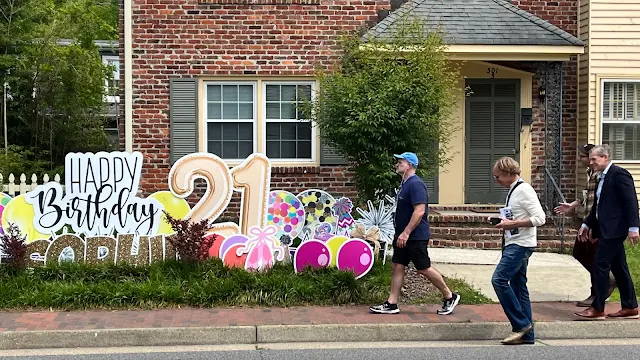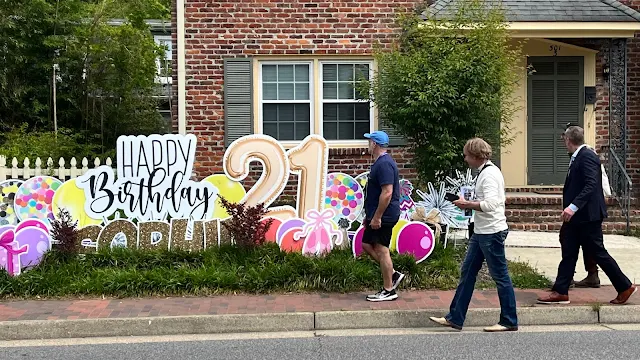Linking to Skywatch
Friday, May 5, 2023
Thursday, May 4, 2023
Fences
Wednesday, May 3, 2023
Tuesday, May 2, 2023
Monday, May 1, 2023
Tucker House
"The St. George Tucker House is one of the original colonial homes in Historic Williamsburg. It was built in 1718–19 for William Levingston (who, incidentally, built the first theater in America). The house eventually came into the hands of St. George Tucker who had moved from Bermuda to Williamsburg. Tucker was a lawyer and professor of law at the College of William and Mary and later became a state and federal judge. In 1796, Judge Tucker wrote a controversial pamphlet addressed to the General Assembly of Virginia. In it he laid out a plan to end slavery in Virginia because 'the abolition of slavery was of great importance for the moral character of the citizens of Virginia.' He is also famous for his 1803 edition of Blackstone's Commentaries. which has become an indispensable American law text." -- Wikipedia
Sunday, April 30, 2023
Tunnels
I've "tunneled" through about half of Mitchell's book now and I'm not about to quit before I'm done. Of course, the subject is of deep interest to me because of my own experiences passing back and forth across the Berlin Wall in the 1970s. Mentions of Checkpoint Charlie, Friederichstraße, VoPos, all bring back vivid and even life-changing moments for me, but I also appreciate the details Mitchell brings to light here surrounding how Easterners attempted and, in some cases, actually succeeded in escaping the GDR. Very much worth your reading, especially considering Vladimir Putin's attempt to drag us all into the past.
Saturday, April 29, 2023
Subscribe to:
Comments (Atom)











